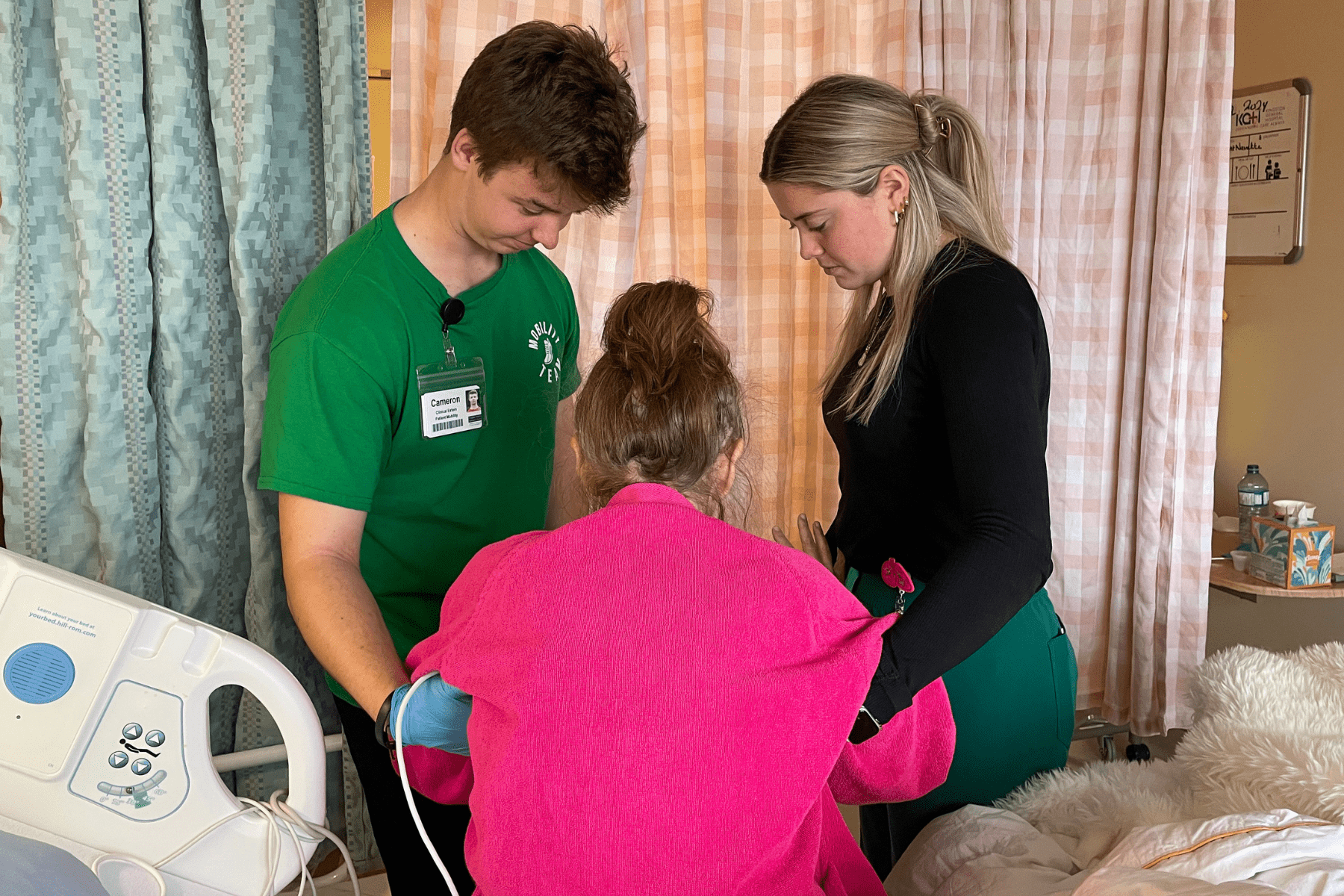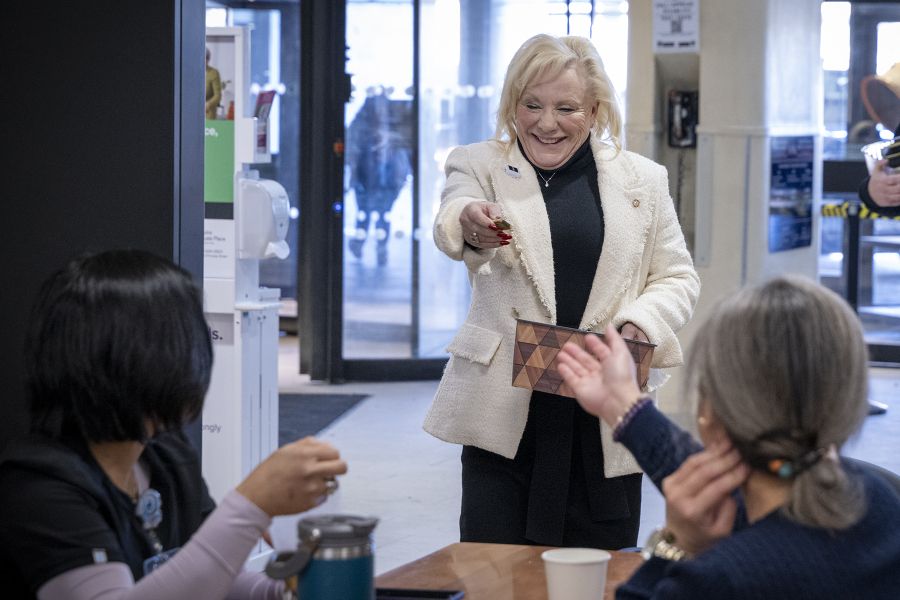
Ruth Woodman calls them the ‘Power Rangers.’
But there’s no morphin’ time here. These students’ superpowers are intuition and empathy, and they are armed with time.
Soon after she was admitted to the hospital with low sodium levels, she was visited by members of Kingston Health Sciences Centre’s mobility team, whose work includes assisting with getting people moving and activities of daily living.
Woodman admits she was not ready, at that time, to budge from her bed unless necessary, but soon realized the team was there to do so much more.
“They have been my lifeline, my superheroes, helping me at this difficult time by connecting with me like family and doing simple things that make a huge difference,” says Woodman.
“I’m amazed at their skill set. They pick up on the smallest things that are often taken for granted, like being able to reach for a personal item.”
Realizing that Woodman didn’t have the strength to get out of bed, let alone stand to look for something she needed, Abigail de Jong, a second-year Queen’s University nursing student and mobility team member, took the time to organize her things in plain sight, making it easier for friends and other care team members to find.
“We have time on our side,” says de Jong, “if a patient needs 30 minutes, we can give it and they won’t feel rushed, which helps build their self-confidence and confidence in us.”
From Woodman’s patient perspective, the mobility team is exactly what is needed in a hospital system that is regularly caring for more patients with complex medical conditions.
“The mobility team is amazing and one that every hospital in Canada should have,” she says.
KHSC’s mobility team is made up of 41 casual students who power up and go to work on all surgical and medical units and in the emergency department to help patients with routine movements needed for activities such as toileting, getting dressed, bathing, and getting up to a chair for meals.
Not only is the team good for patients, it is helping prepare the next generation of nurses and physical and occupational therapists for a rewarding career in health care.
Cameron Kennedy, who is in his final year of nursing at Queen’s, says being on the mobility team has reinforced his belief in the importance of mental health to a person’s recovery from illness.
“It’s huge,” he says, speaking about the powerful impact a conversation can have on someone’s wellbeing.
The connection he, Woodman and de Jong formed was based on chats they had about their careers, friends and family.
Woodman enjoyed quizzing the students about nursing and telling them about ACT (Assertive Community Treatment) teams for individuals with serious and persistent mental health challenges. She is an executive member of the Ontario Association for ACT and FACT (Flexible Assertive Community Teams).
When it was ‘go time’ – the point in her recovery to get up, walk to the other side of her bed and sit in the chair, Woodman put her trust in her ‘Power Rangers’ and got stronger each time she moved.
“Having never been hospitalized for an illness – it was a bit scary – and the support I received from the mobility team was important to getting well again,” says Woodman.



